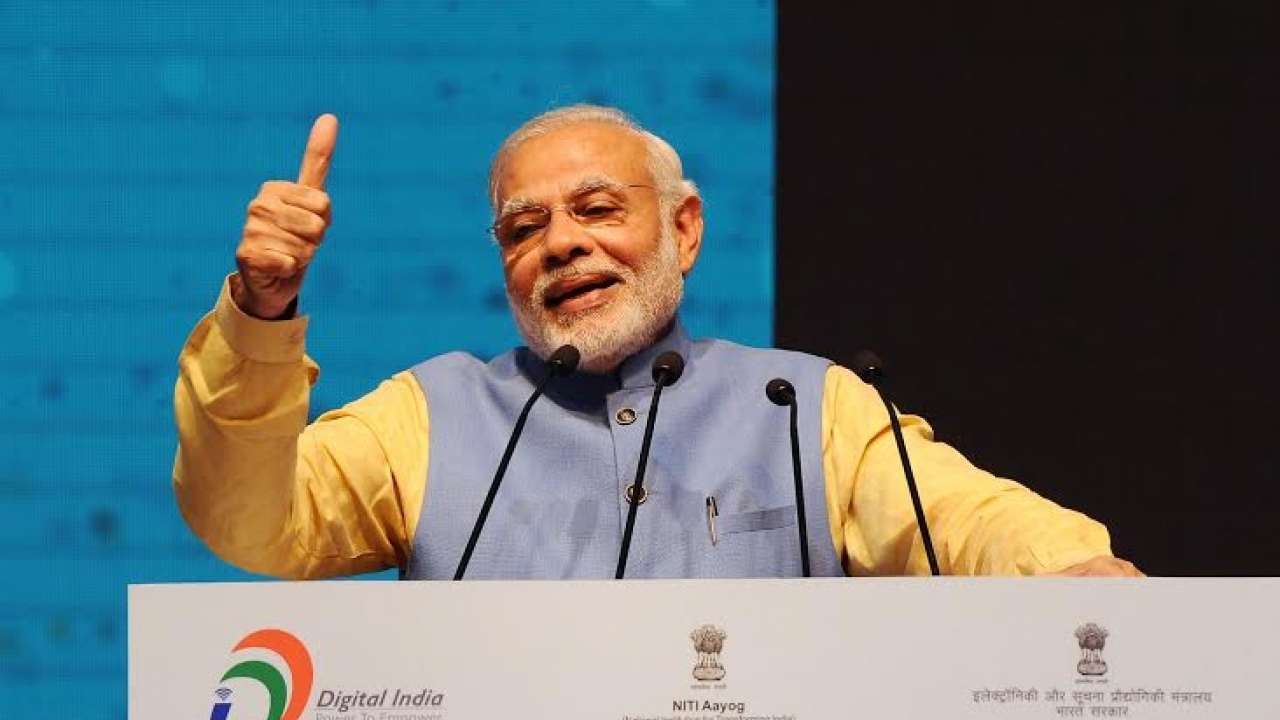PM Modi says reservation act to give a new direction to women-led development

PM Modi says reservation act to give a new direction to women-led development
On September 23, Prime Minister Narendra Modi expressed his support for the women’s reservation bill, which had recently been passed by both houses of Parliament in India. Speaking at the inaugural session of the International Lawyers’ Conference, the Prime Minister stated that this bill, known as the Nari Shakti Vandan Act, would pave the way for a new era of women-led development in the country.
The women’s reservation bill aims to allocate 33 percent of the seats in the Lok Sabha (the lower house of Parliament) and state legislative assemblies for women. Once the President provides her assent, the bill will become law.

This legislation represents a significant step toward gender equality and empowerment in Indian politics. By reserving a substantial proportion of legislative seats for women, it seeks to address historical gender disparities and promote greater female participation in decision-making processes at both the national and state levels. Prime Minister Modi’s endorsement underscores the government’s commitment to advancing women’s rights and fostering their active engagement in shaping the country’s future.
Prime Minister Narendra Modi took the opportunity to recognize and pay tribute to the significant role played by lawyers in India’s freedom struggle. During his address at the International Lawyers’ Conference, he specifically acknowledged the contributions of Mahatma Gandhi, Dr. B.R. Ambedkar, and Sardar Vallabhbhai Patel, who were instrumental figures in India’s journey to independence.

He also highlighted the importance of the legal profession in shaping the foundation of independent India. Modi noted that the legal experience gained during the struggle for freedom had played a vital role in strengthening the country’s institutions. Additionally, he emphasized that India’s impartial judicial system has not only served the nation but has also contributed to building confidence in India on a global scale.
Furthermore, the Prime Minister underscored the timing of the conference, noting that it coincided with a period when India’s democracy, demography, and diplomacy had contributed to the successful hosting of the G20 Summit in New Delhi. He expressed India’s confidence and commitment to realizing the vision of a developed India, often referred to as ‘Viksit Bharat,’ by the year 2047. This vision reflects India’s aspirations for sustained growth, development, and progress in the coming decades.

Prime Minister Narendra Modi emphasized the need for a global framework to address trans-border threats during his address at the International Lawyers’ Conference. He recognized that in today’s interconnected world, there are many forces and challenges that do not respect national borders or jurisdictions. Therefore, he advocated for a global approach to tackling issues that have global implications.
The Prime Minister cited specific examples of trans-border threats that require a global framework, including cyber terrorism, money laundering, and the potential misuse of artificial intelligence. These are complex challenges that transcend national boundaries, and addressing them effectively necessitates international cooperation and coordination.
In addition to discussing global challenges, Prime Minister Modi highlighted the growing importance of alternate dispute resolution (ADR) mechanisms in India. He noted that as commercial transactions become increasingly complex, ADR methods such as mediation and lok adalats (people’s courts) are gaining prominence in settling disputes. India has taken steps to formalize the tradition of dispute resolution by enacting the Mediation Act and recognizing the significant role played by lok adalats in resolving disputes.
Overall, the Prime Minister’s remarks underscored the importance of international collaboration in addressing global threats and the evolving landscape of dispute resolution within India.
Prime Minister Narendra Modi highlighted the importance of using plain and simple language in framing laws during his address at the International Lawyers’ Conference. He noted that efforts were underway to present laws in two languages: one familiar to the legal system and another in a language accessible to citizens. The goal is to ensure that citizens can easily understand and relate to the laws that govern them, fostering a sense of ownership and belonging to the legal framework.
Prime Minister Modi cited the example of the Data Protection Law to illustrate the government’s commitment to drafting new laws in plain and understandable language, further emphasizing the principle that the law should be accessible to all.
He also commended the efforts of the Supreme Court and Chief Justice of India, DY Chandrachud, in translating the operative parts of judgments into regional languages, which enhances access to justice for citizens who may not be proficient in English.
In conclusion, Prime Minister Modi stressed the importance of streamlining legal processes through the use of technology, reforms, and innovative judicial procedures. He highlighted the significant opportunities that technological advancements have opened up for the judicial system and encouraged the legal profession to leverage these technological reforms effectively.
The event was attended by Chief Justice of India DY Chandrachud, Union Minister of Law and Justice Arjun Meghwal, Attorney General of India R. Venkataramani, Solicitor General of India Tushar Mehta, Bar Council of India Chairman Manan Kumar Mishra, and UK Lord Chancellor Alex Chalk, among others.




